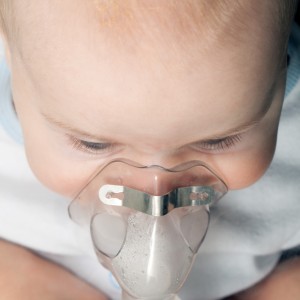 Findings from a recent study published in the Journal of Cystic Fibrosis revealed that pancreatin (Creon Micro) is an effective treatment for children with exocrine pancreatic insufficiency caused by cystic fibrosis, with results showing improvements in growth development parameters over a 3-month treatment period.
Findings from a recent study published in the Journal of Cystic Fibrosis revealed that pancreatin (Creon Micro) is an effective treatment for children with exocrine pancreatic insufficiency caused by cystic fibrosis, with results showing improvements in growth development parameters over a 3-month treatment period.
Exocrine pancreatic insufficiency (EPI) is a condition that affects about 80–90% of patients with cystic fibrosis (CF). It usually occurs at birth and is commonly detected in the majority of CF patients within the first year of age. The condition causes maldigestion of food and malabsorption of nutrients, including fat soluble vitamins, leading to malnutrition and symptoms such as poor weight gain, steatorrhea, and abdominal pain. Evidence show that adequate nutrition and normal growth are associated with better pulmonary function, fewer complications, and increased survival in patients with CF.
If EPI is untreated or under-treated, poor growth and development is likely to adversely affect disease course and survival. Early diagnosis of CF and early detection and treatment of EPI is vital. Pancreatic enzyme replacement therapy is the foundation of nutritional management for exocrine pancreatic insufficiency (EPI).
In their study entitled “Safety and efficacy of Creon® Micro in children with exocrine pancreatic insufficiency due to cystic fibrosis,” Vladimir Kovalev from Abbott Laboratories, Leningradskoe Shosse in Russia and colleagues, conducted an open-label multi center 3-month study where they assessed the safety, efficacy, and ease-of-use of Creon® Micro (5000 lipase units/spoon) in children aged 1 month to < 4 years with EPI due to cystic fibrosis. Efficacy assessments included growth parameters. A total of 40 children completed the treatment.
After the 3-month period, the results showed an increase from baseline in weight-for-age, height/length-for-age, and BMI-for-age. Caregivers noted that treatment was easy to administer (95%) and well tolerated (90%).
A total of 40% of the study’s patients experienced adverse side effects. The most common were infections in the respiratory tract (observed in 15% of the patients), along with frequent bowel movements (observed in 8% of the patients), stomatitis, nasopharyngitis, rhinitis, and diarrhea (all observed in 5% of the patients). However, these side effects did not lead to study discontinuation. Based on the findings, the research team concluded that Creon Micro is well tolerated for children with EPI subsequent to CF.
[adrotate group=”9″]

